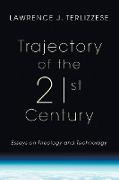The Greater German Reich and the Jews
BücherAngebote / Angebote:
This elegant volume explains how the unique demographic, economic, and social situation in each area annexed to the Third Reich played out in anti-Semitic policies. In some cases, such as Memel, Eupen-Malmedy, and Alsace, it offers the first overview of the persecution of Jews in a particular area. In other cases, such as Austria and East Upper Silesia, it presents a stellar overview of areas in which the Final Solution is already well-documented. But as the editors' introduction underscores, the real strength of the volume is that it examines the cases together." · Catherine Epstein, Amherst College Between 1935 and 1940, the Nazis incorporated large portions of Europe into the German Reich. The contributors to this volume analyze the evolving anti-Jewish policies in the annexed territories and their impact on the Jewish population, as well as the attitudes and actions of non-Jews, Germans, and indigenous populations. They demonstrate that diverse anti-Jewish policies developed in the different territories, which in turn affected practices in other regions and even influenced Berlin's decisions. Having these systematic studies together in one volume enables a comparison - based on the most recent research - between anti-Jewish policies in the areas annexed by the Nazi state. The results of this prizewinning book call into question the common assumption that one central plan for persecution extended across Nazi-occupied Europe, shifting the focus onto differing regional German initiatives and illuminating the cooperation of indigenous institutions. Wolf Gruner holds the Shapell-Guerin Chair in Jewish Studies and is a Professor of history at the University of Southern California, Los Angeles. He is the author of eight books on the Holocaust, including Jewish Forced Labor under the Nazis: Economic Needs and Nazi Racial Aims (2006). He is the founding director of the Center for Advanced Genocide Research at the USC Shoah Foundation. Jörg Osterloh is a research fellow at the Fritz Bauer Institute and teaches contemporary history at Goethe-University in Frankfurt am Main, Germany. His numerous publications include Nationalsozialistische Judenverfolgung im Reichsgau Sudetenland 1938-1945 (2006) and the co-authored study Flick: Der Konzern, die Familie, die Macht (2009).
Folgt in ca. 15 Arbeitstagen




